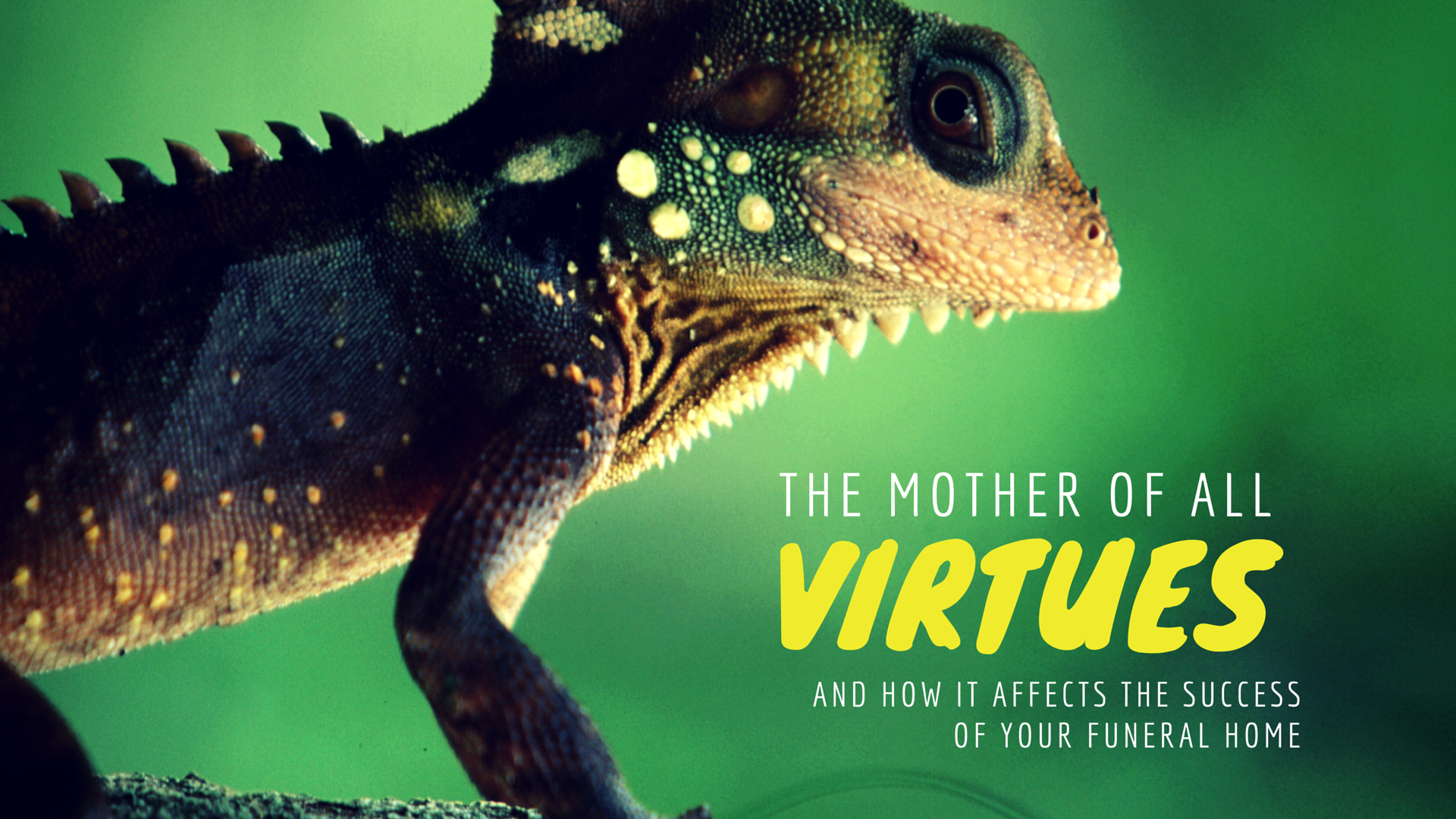The Mother of All Virtues and How it Affects the Success of Your Funeral Home
Article by: Mark Thogmartin, VP of Business Development at DISRUPT Media
My wife and I are the parents of three boys, all of whom are now adults. Like all parents, we wanted them to have friends, but we wanted them to have “good” friends, or friends who would be more of a positive influence than a negative one. As I consider the many young men (and young women) who came in and out of our lives through our sons over the years, I’ve noticed something that I think is noteworthy. Let me tell you more.
Some of the companions with whom my sons spent time might have been considered a little rough around the edges. Especially when I think about my two younger boys, both of whom were heavily involved in BMX bike riding (the kind that involved big ramps, high speeds and high altitudes, flips, and other daring and, sometimes, bloody maneuvers). The kids who were into this extreme sport were part of a counterculture group of which most adults would be leery. As our sons friended these guys, they would often remark “He’s really nice,” or “You’ll like him. He’s very laid back.”
And they were usually right. Even though their friends were often dressed in skater gear, sporting tattoos and body piercings, and had hair styles that were “unusual,” the ones with whom they chose to hang out were usually very nice and respectful to us adults. But as I’ve thought more deeply about what characteristic in these guys my sons, my wife, and I all admired, it went deeper than just being friendly or respectful. I believe the characteristic that made these guys “OK” in our eyes was humility. I think it’s true for all civilized people in all cultures that the primary thing that draws us, in an endearing way, to another is a sense that this person is a humble soul.
According to Stephen Covey in First Things First, “Humility is truly the mother of all virtues.” As Covey points out, humility is realizing “that we’re not an island, that the quality of our lives is inseparably connected to the quality of lives of others; that meaning is not in consuming and competing, but in contributing.” I’ve studied leadership principles in my formal schooling and private reading, and I’ve striven to exercise what I’ve learned about leadership in the various professional positions I’ve held. I’m convinced that the best leaders, the best humans really, are those in whom the first characteristic you see and sense is humility.
Consider these observations:
- A humble person always treats others as better than himself, or at least as an equal peer, no matter what position is held by him and them.
- A humble person is willing to listen to the thoughts, concerns, ideas, and suggestions of others without pre-judging motives or the relative “worthiness” of the person.
- A humble person cares about people first. Profit, influence, and status are secondary.
- A humble person is more concerned about character than image, both in herself and in others.
- A humble person does not demand that others show him the honor due his status. He does not get offended if others of inferior position do not bow (figuratively speaking) in his presence.
- A humble person is able to submit herself to others who hold positions of authority without being jealous.
Now, in the light of the above observations, consider these questions:
- Do you show more favor to those who can, potentially, benefit you in some way? Do you ignore those who probably are unable benefit you?
- How do you treat sales people who call on you? Do you return calls and emails, even if it’s to say “Thanks, but no thanks?” Do you have the courtesy to inform them if you can’t make it to a sales appointment they’ve set up with you?
- Do you acquire things out of a sense of superiority? Does the way others dress, or the way you dress, hold far too much importance in your eyes? Must you always have the newest and best of everything, from cars, to golf clubs, to jewelry, or to shoes with the primary purpose of impressing others?
- Do you get upset if others do not show you the measure of respect you believe you have earned?
- Are your employees afraid to approach you with new ideas, or with suggestions for change or improvement?
- Do you shun accountability? Do you ignore correction? Do you avoid situations where others may be invited to judge your work?
- Are you often unwilling to ask for help? Is it hard for you to recognize and utilize the expertise of others?
If you have answered “Yes” to one or more of these questions, you may need to consider where you stand on the humility scale. Perhaps some soul searching and even some apologies are due. It is usually true that those who hold the most influence and who garner the most respect are those who have, in humility, enabled and welcomed and honored the help of others along the way.
About Author
Dr. Mark Thogmartin is a life-long educator, working with students from Kindergarten through the doctoral level. He has degrees from the University of Kentucky, the Ohio State University, and Andrews University. Mark’s book, Teach a Child to Read with Children’s Books, has gained wide acceptance among reading tutors and parents who are teaching their children at home. In addition to assisting his son, Ryan, at DISRUPT Media as Vice President of Business Development, he works part-time as a mentor of doctoral students at Capella University. Mark and his wife Donna live in Millersport and are the parents of three adult sons and the grandparents of two beautiful granddaughters.




